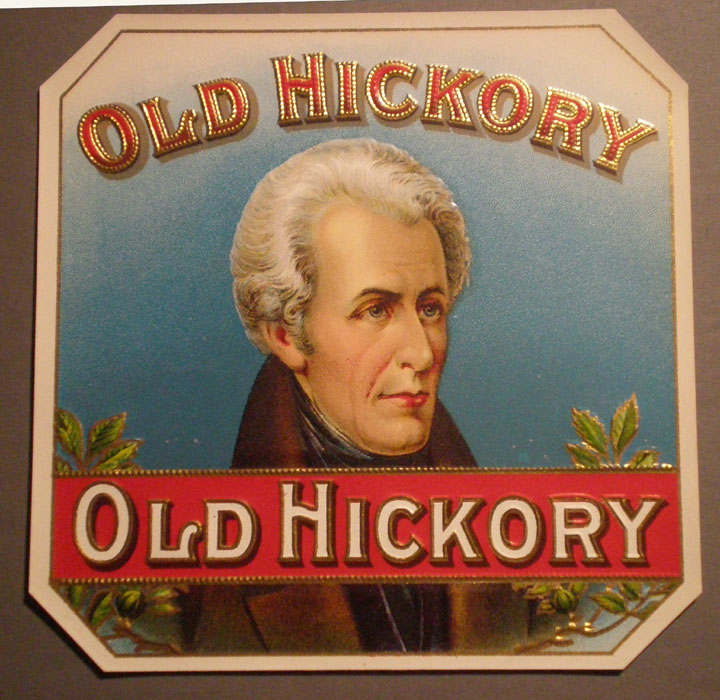 In a recent blog on the Greensboro, N.C. News-Record site, Doug Clark proclaims that “Maybe it’s time to send for President Andrew Jackson, who called the nullification movement of his day–also centered in South Carolina–treason.”
In a recent blog on the Greensboro, N.C. News-Record site, Doug Clark proclaims that “Maybe it’s time to send for President Andrew Jackson, who called the nullification movement of his day–also centered in South Carolina–treason.”
What on earth would prompt Mr. Clark to channel “Old Hickory”? Why, none other than South Carolina’s “right wingers,” celebrating the recent passage of a South Carolina house bill “that supposedly nullifies parts of the Affordable Care Act, or Obamacare.” Mr. Clark also mentions that Michael Boldin of the Tenth Amendment Center, “crowed” his approval of the South Carolina push-back.
Bringing Jackson back may not help Clark’s argument–as it is–against the time-honored practice of nullification. Clark explains why Jackson is the go-to guy to put the S.C. nullifiers in their place when he references South Carolina’s revolt against President Jackson and the federal government’s 1828 “Tariff of Abominations,” which not only raised the ire of South Carolina, but of other Southern states as well.
To make his “point” against nullification, Clarke quotes Jackson, who tried to put South Carolina in its place by saying, “If one drop of blood be shed there in defense of the laws of the United States, I will hang the first man of them I can get my hands on to the first tree I can find.” (Jackson was good at bluster.)
Clark conveniently leaves out the part where President Jackson eventually backed down when Henry Clay brokered a compromise with South Carolina lowering the tariff, bringing relief to all of the other affected states as well–just like the partial nullification of Obamacare example. He also fails to mention Jackson once allowed Georgia to ignore Supreme Court orders relating to the treatment of the Cherokees.
Clark also doesn’t mention that Jackson himself turned against an unconstitutional creation of the federal government, the corrupt and politicized Bank of the United States (BUS). A number of states from the north to the south, with Ohio leading the charge, assisted President Jackson in his efforts to defund the bank and tax it out of existence.
Additionally, when the U.S. Supreme Court opined that the BUS was constitutional, Jackson, in effect, replied that his own opinion differed and was just as valid. Kind of sounds like something state nullifiers would say.
I’ll let Jackson take an old hickory switch to Clark in the form of his first inaugural address in 1829.
“In administering the laws of Congress I shall keep steadily in view the limitations as well as the extent of the Executive power trusting thereby to discharge the functions of my office without transcending its authority….In such measures as I may be called on to pursue in regard to the rights of the separate States I hope to be animated by a proper respect for those sovereign members of our Union, taking care not to confound the powers they have reserved to themselves with those they have granted to the Confederacy.”
And Jackson remains consistent in his homage to the states in his second inaugural address:
“In the domestic policy of this Government there are two objects which especially deserve the attention of the people and their representatives, and which have been and will continue to be the subjects of my increasing solicitude. They are the preservation of the rights of the several States and the integrity of the Union. These great objects are necessarily connected, and can only be attained by an enlightened exercise of the powers of each within its appropriate sphere in conformity with the public will constitutionally expressed. To this end it becomes the duty of all to yield a ready and patriotic submission to the laws constitutionally enacted and thereby promote and strengthen a proper confidence in those institutions of the several States and of the United States which the people themselves have ordained for their own government. My experience in public concerns and the observation of a life somewhat advanced confirm the opinions long since imbibed by me, that the destruction of our State governments or the annihilation of their control over the local concerns of the people would lead directly to revolution and anarchy, and finally to despotism and military domination.”
Yes, Mr. Clark picked the wrong president to come to his aid.
And no, Mr. Clark, Michael Boldin wasn’t crowing. He was just expressing his pleasure with South Carolina’s actions. When one is confident and backed by facts, one doesn’t have to crow. So it turns out that the only crow I can see is that on which Mr. Clark is feasting.
- Eating Crow - May 25, 2013
- Wittes Protection - April 13, 2012
- The Middle Ground is Dangerous - April 4, 2012

